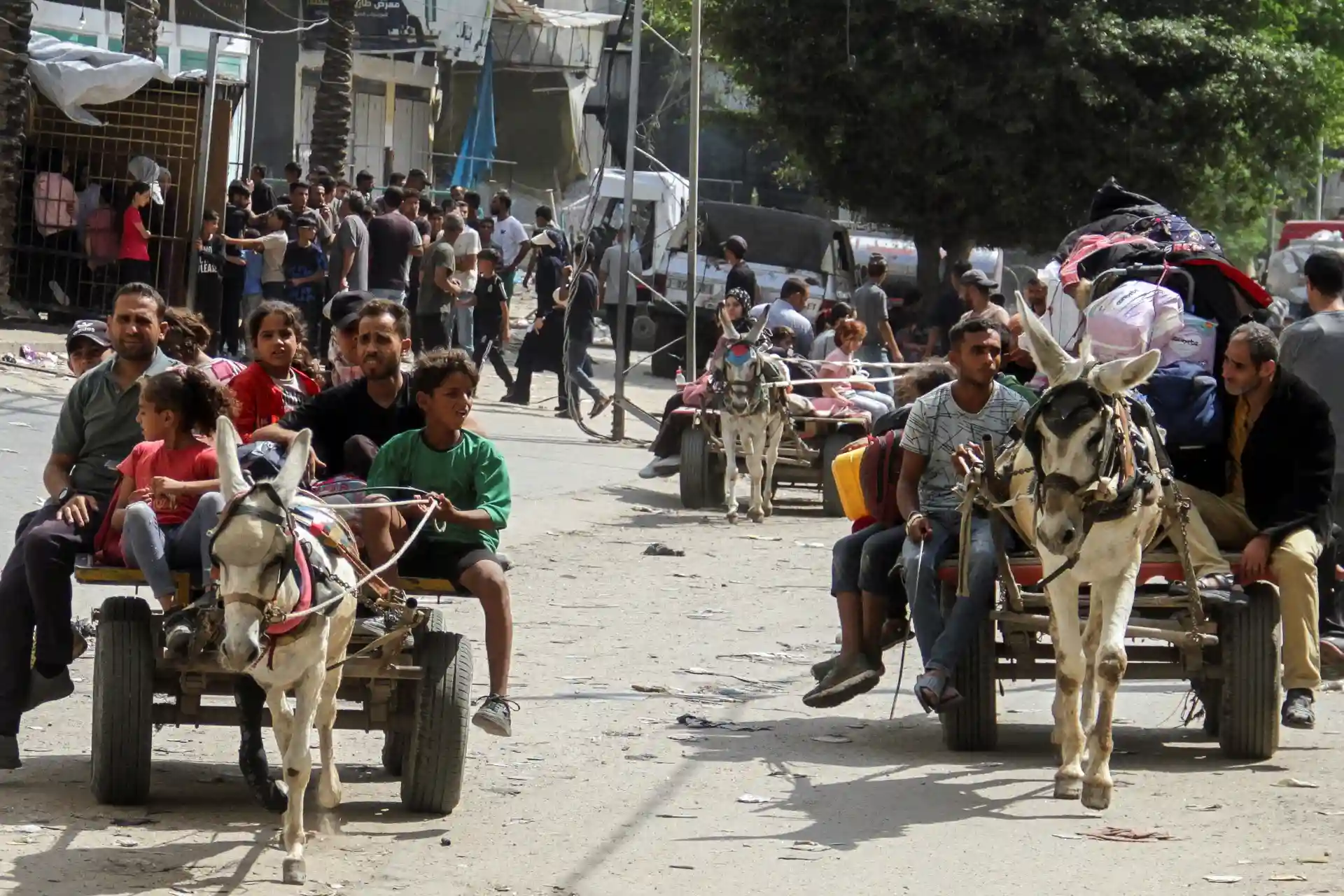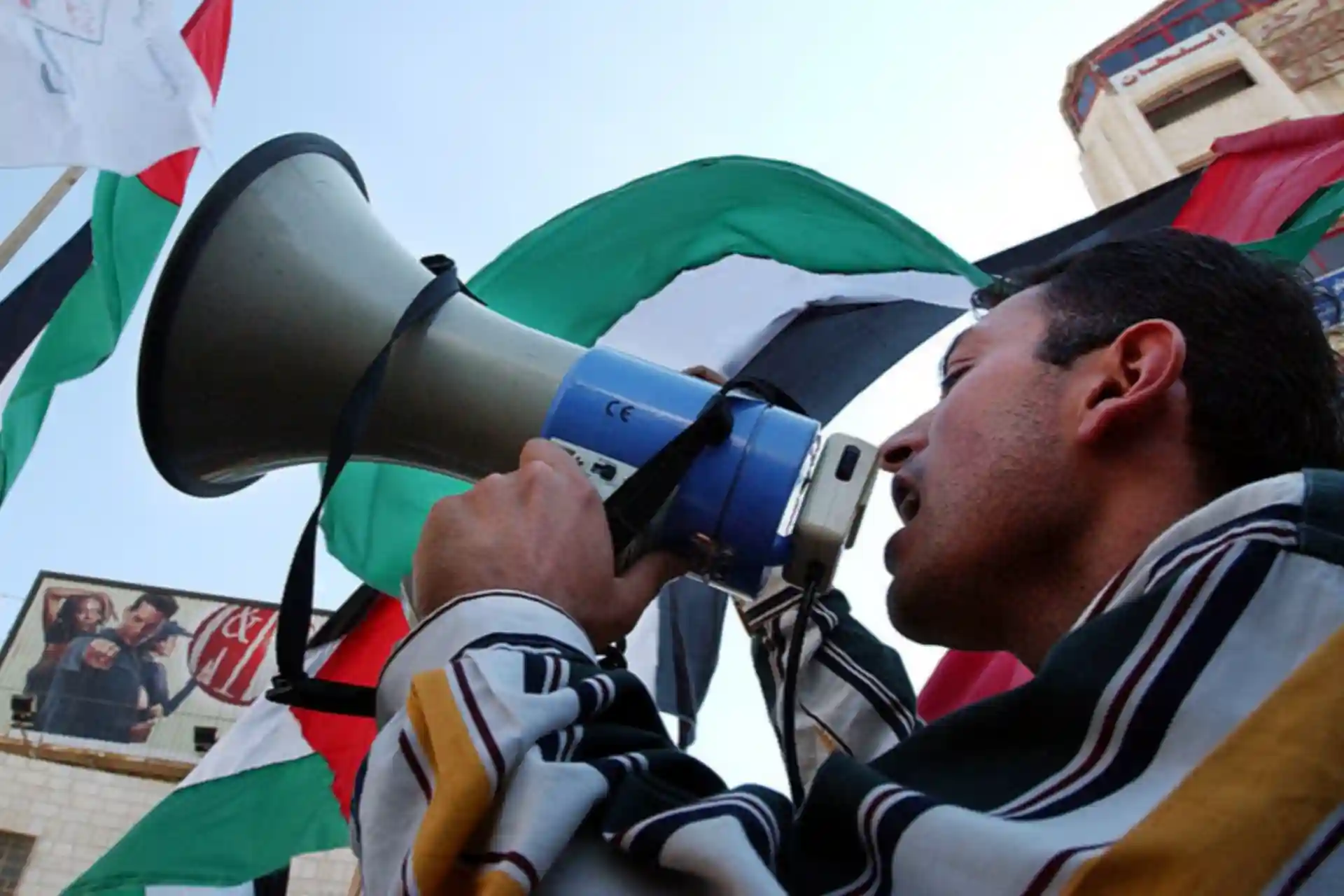Gaza: 366 days in the shadow of genocide
On October 7, 2023, the world witnessed Israel's invasion of the Gaza Strip. Today, exactly one year later, we look back to understand the scale of the tragedy that many, without exaggeration, call the genocide of the Palestinian people . 366 days of explosions, destruction and human suffering have left the once bustling coastal region in ruins, where survival has become a daily feat.
Scary statistics
The United Nations Relief and Works Agency for Palestine Refugees in the Near East ( UNRWA ) has released some shocking statistics. 41900 victims . It's not just a number - it's whole families, destroyed lives, lost hopes. The fate of 10,000 or more missing persons is still unknown, and their relatives remain in agonizing uncertainty.
1.9 million people were forced to leave their homes . Just imagine: almost the entire population of Gaz was forced to leave their homes several times. Some families had to move up to 20 times this year, each time losing a part of themselves, their history, their roots.
Among the dead are 16,800 children. A whole generation that was not lucky enough to grow up, learn, love, or build a family. The lives of 11,400 women - mothers, daughters, sisters - ended very early. About 1,000 medical workers tried to save others' lives until their last breath .
175 journalists were the eyes and ears of the world in this conflict and paid a heavy price for their efforts to convey the truth. Death statistics for the most vulnerable - newborns - are particularly alarming. More than 700 babies did not live to see their first birthday. 38 children died of hunger - XXI a srda, in a region that was once called the breadbasket of the Middle East.
The humanitarian situation in Gaza has reached a critical point. According to the UN Office for the Coordination of Humanitarian Affairs, from September 1 to 15, 2024, an average of only 67 aid trucks entered the Gaza Strip per day.
By comparison, before the outbreak of the conflict, this figure was 500 trucks per day. Lack of food, medicine and clean water has become a daily reality for the people of Gaza. These numbers are not just statistics. This is a sentence for all mankind for allowing such a tragedy to happen.
Life in ruins
Behind those dry numbers lies a reality that is hard to imagine for those who have not seen it with their own eyes. The streets of Gaza, once bustling with life and sounds, are now filled with the ghosts of the past. People are wandering in the destroyed neighborhoods, their hopes are gone and their hearts are empty . The hot sun mercilessly burns their tired bodies, as if it wants to burn the last remnants of hope.
For Gazans, every day is a struggle for survival. They are fighting for every drop of water, every piece of food. Returning to their temporary shelters - tents, dilapidated buildings, overcrowded shelters - they fall asleep under the flight of Israeli drones searching for new targets. The hashtag #wherewego has become a bitter symbol of Palestinian helplessness.
When your house is destroyed, your city is destroyed, and the ground beneath your feet looks like a pile of lifeless dust and ashes, where do you go? Thousands of people ask themselves this question every day and cannot find an answer .
The world is "sympathizing"
The international community seems to be tired of this tragedy. News of the devastation in Gaza is no longer shocking. The Western media is covering less and less of what is happening, as if it is trying to forget that this conflict exists. But for Gazans, this is not news - it is their daily reality.
Israel, according to many observers, is systematically extinguishing the desire to live among the Palestinians. Every destroyed house, every lost life is a blow to the hope for a peaceful future. Prime Minister Benjamin Netanyahu and other Israeli officials often accuse the international community of hypocrisy when they say it ignores other conflicts and humanitarian disasters like those in Yemen and Sudan. However, statistics show that the conflict in Gaza surpasses many modern wars in terms of intensity and death toll.
The broader geopolitical context of this conflict cannot be ignored. Many experts see what is happening not just as a local conflict, but as part of a larger game in the Middle East. The US, Great Britain, France, Germany and other Western countries have been accused of complicity in the genocide by providing massive support to Israel.
The history of the creation of Israel as a "Western outpost" (military stronghold) in the Middle East in the 20th century dates back to the beginning of the century. The Balfour Declaration of 1917 was the starting point for the creation of a Jewish state in Palestine. Since then, the conflict between the Israelis and the Palestinians has continued and often flared up with renewed vigor.
Analyzing today's events in the historical context, it is difficult to believe in the sincerity of the West's calls for a ceasefire and peace. No matter how much we want to believe in " sympathy " and "concern", the facts show the opposite. As the famous saying goes, the road to hell is paved with good intentions. In this case , even good intentions are not clear.
The West, judging by its actions and inaction, is not just a silent observer, but also a participant in what is happening. High- flying statements about the need for peace lose meaning in the context of continued support for the Israeli war machine.
In this tragedy, which is happening before the eyes of the people of the whole world, the Western countries do not play the role of peacekeepers, on the contrary, they are accomplices in the genocide of the Palestinian people.
Humanitarian consequences
In addition to the direct victims of the conflict , many people suffer from its indirect consequences. Infrastructure - hospitals, schools, water supply and sewage systems - was destroyed. The economy of Gaza is almost destroyed . An entire generation of children is deprived of a normal childhood, education and hope for the future.
The mental injuries suffered by Gazans this year will last for many years. How can you regain the will to live after losing everything - home, family, future? How to explain to a child that he will not see his friends or parents anymore?
A year after the tragedy , the future of Gaza remains uncertain. Even if hostilities cease tomorrow, it will take years, if not decades, to rebuild the region. It's not just about physically restoring the infrastructure, but also about healing the human heart, hopes and confidence.
The brutal conflict could further radicalize Gaza's population, which could lead to more violence in the future.
The attitude of the international community
The reaction of the international community to the events in Gaza is different. On the one hand, many countries and organizations condemn Israel's actions and call for a ceasefire. On the other hand, not enough real steps are being taken to stop the conflict.
The UN has repeatedly expressed "deep concern" about the situation in Gaza and called for a peaceful solution to the problem. But these calls continue to echo in the wilderness of international politics, with many resolutions turning out to be platitudes , and the organization itself proving to be a weak bureaucratic structure without real enforcement tools.
The impact of such statements only causes bitter smiles to those who face the horrors of war every day. Now many criticize the organization for its lack of action and inability to influence the development of events. Gaza has become a bleeding wound in the body of the international legal order . And the five permanent members of the UN Security Council are denying the cries for help from the whole world.
Some countries, mainly in the Middle East, are trying to provide humanitarian aid to Gaza. Their efforts are certainly worthy of respect. However, this amount of aid is like a drop in the ocean of suffering and destruction that engulfs the land of Palestine. The humanitarian convoys passing through the blockade are in no way able to compensate for the weight of the bombs falling on the civilian population every day.
Will the world hear the cries for help?
A year of war in Gaza is not just a line in future history books. It is 365 days of continuous suffering, loss and destruction. These are thousands of ended lives, millions of broken hearts . It's a reminder of how fragile the world is and how easily humanity can fall into the abyss of barbarism.
The world is faced with a choice: continue to turn a blind eye to what is happening, or find the strength to end this conflict. Because every day of delay is another day of suffering for thousands of innocent people.
Gaza appeals to our conscience. Will we hear this cry or will we let it die in the bomb blast? The answer to this question will determine not only the future of this small coastal region, but also the spiritual face of all humanity.
Source: TRT



